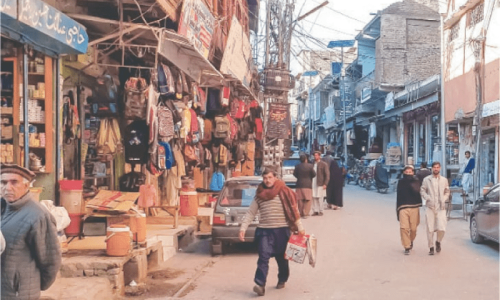
NAJAF: The firebrand Iraqi cleric whose followers make up a crucial swing vote said Sunday the prime minister must resign as a first step to pull Iraq out of the morass that has all but paralyzed its government.
Speaking to reporters from his headquarters in the holy c said he would not bow to pressure from Iran and other Shiite religious leaders to continue supporting Prime Minister Nouri al-Maliki.
He joins Sunni and Kurdish officials who seek to oust al-Maliki, a Shiite, in the first major Shiite defection against the premier.
Al-Sadr accused al-Maliki’s government of keeping Iraq’s minorities away from power and failing to fix legal systems and other public services. He said he would direct his party’s 40 lawmakers to support a no-confidence vote against al-Maliki if he is sure other political blocs in parliament will provide the rest of the 163 votes needed.
“The reforms are main goal, and the no-confidence vote is the beginning of the reforms,” al-Sadr said in a rare and wide-ranging hour-long news conference. “And like ablution before prayers, reforms cannot happen without pressuring the government.”
He added, “If the head is reformed, everything beyond it is reformed.”
His declaration delivers a sharp blow to al-Maliki's efforts to hold on to power. Al-Sadr’s followers are the first major Shiite party to take sides against al-Maliki.
Al-Maliki media adviser Ali al-Moussawi declined to comment on al-Sadr’s statements. The prime minister’s aides have previously predicted any vote to replace al-Maliki would fall short, as has Iraqi President Jalal Talabani, a Kurd.
Two other top Iraqi politicians, Kurdish regional president Massoud Barzani and the parliament speaker, Osama al-Nujaifi, a Sunni, are pushing for al-Maliki to resign.
Political tensions that pit Iraq’s main political coalitions against each other have been simmering for years. They split largely along religious and ethnic lines within days of US troops leaving Iraq last December.
Al-Maliki’s critics say he is using the government to settle old scores with Sunni Muslims after decades under Saddam Hussein’s regime, and to prevent Kurds from raking in huge oil revenues at the expense of Baghdad.
The prime minister’s supporters deny he has let personal politics dictate government policy, pointing to Sunni and Kurdish officials in his Cabinet as evidence that he is inclusive.
Months of speculation that al-Sadr would defect from a political coalition that al-Maliki cobbled together to keep his job after falling short in the 2010 national election, have spurred widespread fears that would cause an irreparable fracturing among Iraq's majority Shiites.
In recent weeks, al-Sadr has been summoned to Iran to discuss the political situation in what was seen as pressure by Tehran to remain with al-Maliki.
One of al-Sadr’s mentors, Grand Ayatollah Kazim al-Haeri, has urged him to avoid dividing Iraq’s Shiites over political disputes and published a fatwa, or religious edict, forbidding support for secular politicians in Iraq’s government.
On Sunday, al-Sadr said that he respects al-Haeri’s opinion but that since Iraq's constitution is based on Islamic law, any secular leader would have to follow it. He also dismissed suggestions he could be swayed by Tehran.
“You know me,” he chided the journalists. “If I insist on an opinion, no one can influence me, not Iran or any other.” Al-Sadr seemed comfortable with the media, whom he called to his office to express support for press freedoms. Over the last 18 months, he has returned to Iraq and launched something of a charm offensive as he gains political clout.
He denounced a new attempt by the government to shut down at least 44 news organizations in Iraq that officials said have failed to properly license their operations. The list newspapers, radio and television stations targeted for shutdown was compiled a month ago but became public only on Sunday.
An Iraqi press freedom group called it a warning to the media that threatens the future of Iraq’s fledgling democracy.
“It is a government message to the media outlets that if you are not with us, then you are against us,” said Ziyad al-Aajely, head of the Journalistic Freedoms Observatory.
Safaa Rabie, head of Iraq’s Communications and Media Commission that regulates the news media, denied that. ''It is an organizational matter, not a crackdown on the press,” he said.
Most of the targeted media outlets are based in Iraq, although foreign broadcasters, including the BBC and Voice of America, were on the list as well as the US-funded Radio Sawa. Voice of America does not operate from Iraq, and the BBC has significantly pared down its staff.
An official at Radio Sawa said it does have a license and could not explain Sunday why it had been singled out.














































Dear visitor, the comments section is undergoing an overhaul and will return soon.